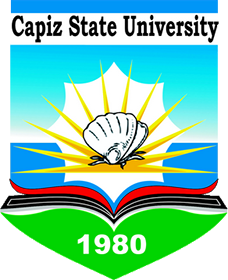Mathematical ability, science misconceptions and students’ performance
| dc.contributor.author | Fuentes, Princess Lydia S. | |
| dc.date.accessioned | 2024-03-12T03:44:21Z | |
| dc.date.available | 2024-03-12T03:44:21Z | |
| dc.date.issued | 2017 | |
| dc.identifier.citation | Fuentes, P. L. S. (2017). Mathematical ability, science misconceptions and students’ performance, CAPSU Faculty, Capiz State University Research Journal, 29(1), 92-102. | en |
| dc.identifier.issn | 1908-3637 | |
| dc.identifier.uri | https://repository.capsu.edu.ph/handle/123456789/161 | |
| dc.description.abstract | This survey-correlational research aimed to ascertain the mathematical ability, science misconceptions and performance of seventy-one (71) first year college students of Capiz State University, Dayao Satellite College, Dayao, Roxas City, Capiz during the first semester of academic year 2016–2017. Mathematical ability and Science Performance researcher made test questionnaires and the revised American Association for the Advancement of Science (AAAS) Assessment Questionnaire 2013 instrument were used to determine the science performance of the respondents based on their mathematical ability and level of science misconceptions. The statistical analyses used were mean, standard deviation, t-test for independent samples, Analysis of Variance (ANOVA), and Pearson r. In general, the respondents were mathematically “fairly able” (M=29.15, SD=4.087). In particular, out of 71 respondents, 73% were “fairly able”, 24% were “able” and only 3% were “highly able”. Respondents level of science misconceptions were “moderately high/low” (M=28.83, SD=3.179). Of the 71 students, 35% were having “low” level of misconceptions and 65% are with “moderately high or low” level of science misconceptions. As a whole, respondents had “satisfactory” performance in science (M=26.68, SD=3.179). Particularly, 89% of 71 students had “satisfactory” performance, 7% with “very satisfactory” performance and only 4% have “poor” performance in science. There was a significant difference in the science performance of first year college students when grouped according to their mathematical ability (F(2,68) = 111.463, p<0.05). Science performance of students differed significantly among the mathematically “highly able”, “able” and the mathematically “fairly able” students. Also, results showed that there was a significant difference in science performance of students when grouped by their level of science misconceptions. Furthermore, data revealed that students performance in science was significantly related with their mathematical ability (r=0.334, p<0.01) and level of science misconceptions (r=1.000, p<0.01). As found out that there were significant relationships among science performance, mathematical ability and level of science misconceptions, it appears that mathematical ability and level of science misconceptions are factors affecting their science performance. | en |
| dc.language.iso | en | en |
| dc.publisher | Dayao Campus, Capiz State University | en |
| dc.relation.uri | http://researchjournal.capsu.edu.ph/index.php/crj20171/article/view/26/pdf | en |
| dc.subject | Mathematical ability | en |
| dc.subject | Science misconceptions | en |
| dc.subject | Science performance | en |
| dc.subject | Survey | en |
| dc.subject | Correlational research design | en |
| dc.subject.lcsh | Mathematical ability--Testing--Evaluation | en |
| dc.subject.lcsh | Science--Ability testing | en |
| dc.title | Mathematical ability, science misconceptions and students’ performance | en |
| dc.type | Article | en |
| dc.citation.journaltitle | Capiz State University Research Journal | en |
| dc.citation.volume | 29 | en |
| dc.citation.issue | 1 | en |
| dc.citation.firstpage | 92 | en |
| dc.citation.lastpage | 102 | en |
